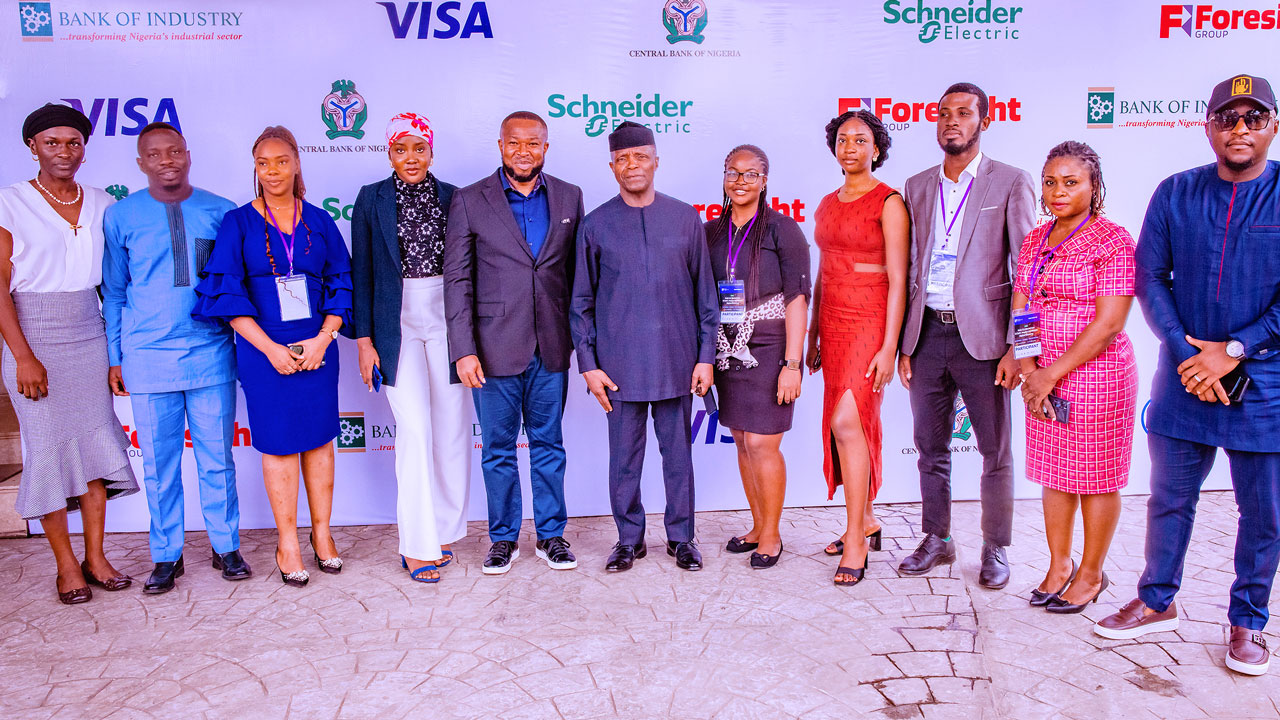
Insists nation must develop policies that promote innovation, commerce
Vice President Yemi Osinbajo has declared that Nigeria has the requisite talents, creativity and acumen to become a world leader in digital economy.
In an address, in Abuja, yesterday, where he was special guest and keynote speaker at this year’s Nigeria Digital Economy Summit (NDES), with the theme, ‘Web 3.0, Blockchain and DeFi: Impact on Africa’s Digital Economy,’ the Vice President noted that with the right approach and policy, as well as the country’s human capital and potential, Nigeria can become a world leader in digital technology.
Delving into the different levels of progress recorded since the advent of the Web, Osinbajo highlighted the future of technology, digital economy and what it means globally and, especially, for Nigeria.
He said: “A whole new world is unfolding before our very eyes, unlike Web 1 and 2, where we were relatively disadvantaged. In 1989, we didn’t have mobile phones, so we could not take advantage of the reach and depth that mobile telecoms gave digital innovation and financial inclusion. We are now better positioned to be significant players in Web 3.
“We have already shown that we have the talent, creativity and acumen to build and grow major tech companies. At the last count, we have six unicorns and many more on the way. But we must spend time on the development of digital skills.”
While canvassing more synergy between government (public) and the private sector in driving the digital economy revolution in the country, the Vice President stressed that both sectors must find ways to ensure policy is way ahead for development.
He said: “We must think through and develop appropriate policies and regulations that promote, rather than inhibit, innovation and commerce. We can be world leaders in the Web 3 revolution. The only limit is our vision.”
Highlighting the Web 3 revolution, Osinbajo added: “We are in the early days of Web 3.0. Its defining components, as we can already see, are block chain technology, smart contracts, DEFIs (Decentralised Financing), tokens, both fungible and non-fungible tokens (NFTs); and the whole range of token economics; unlike Web 2.0 where data is mostly centrally stored.
Web3.0 data will be interconnected in a decentralised way and will also be machine-readable.
“Decentralised protocols, as you know, is at the heart of block chain, cryptocurrency technology and the whole range of DeFis. So, these systems will be effectively integrated and interoperable and automated through smart contracts.
“That data will be machine readable is very significant, which is why Web3 is sometimes described as the Semantic web. This means that users and machines using AI and Machine Learning will be able to creatively interact with data.
“Now, these developments mean a whole lot. First is the increasing sovereignty of the user. The user will have more control over personal data. DeFi will mean cheaper and faster financial transactions, as the middle institutions will be retired. So, this means more room for FinTechs, and not just for banking services but insurance and consumer finance.
“Even central banks will have to rethink their roles, since block chain will challenge the centralisation of monetary authority with its clear imperfections. Who knows, we might actually be in the last days of the central banking system as we know it.”



